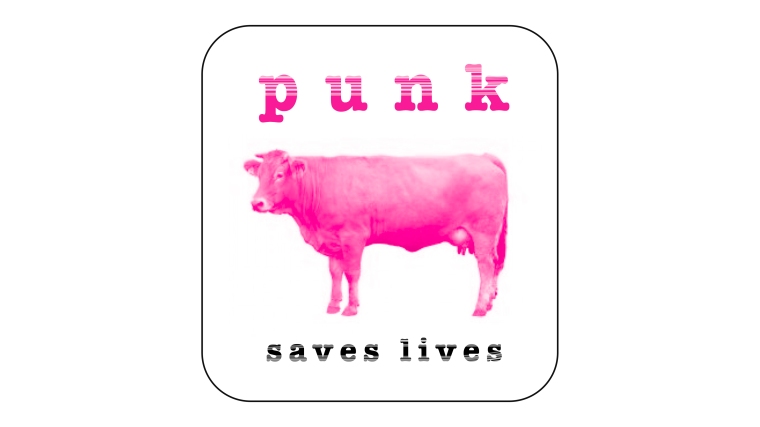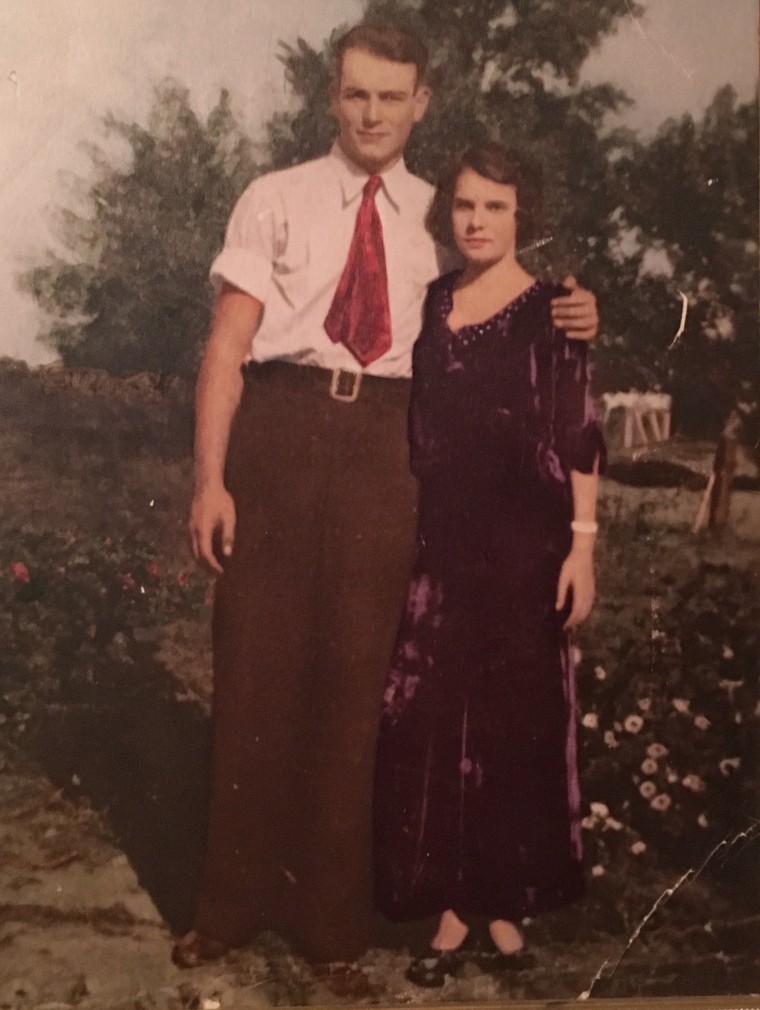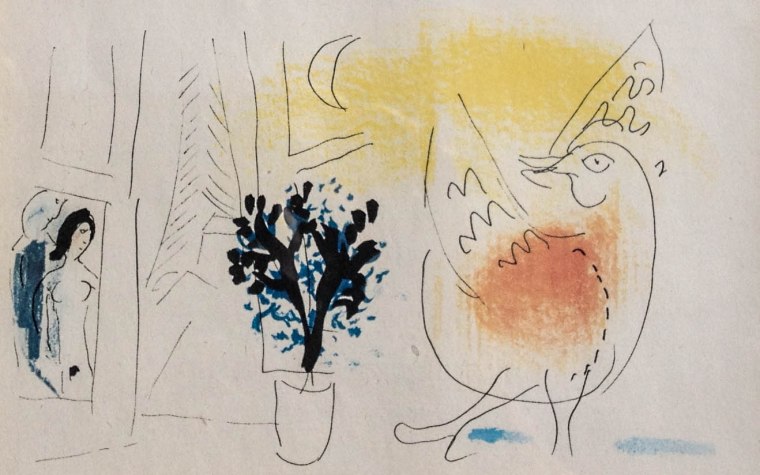If Marcy had written the time down wrong, he’d send her packing this time for sure. As if beating his way across town in rush hour traffic weren’t enough annoyance without having to wait outside a bodega in the sweltering heat with the smell of warm cabbage and liverwurst and stale mop water drifting out each time the door opened. The handles of the sample boards were biting into the palms of his hands and he shifted them for the umpteenth time.
George squinted at the building across the street, resenting his client for going with a row house instead of a condo. A doorman would let a respectable designer wait in an air conditioned lobby. He’d be perched on the ubiquitous chrome and leather mid century chair, checking emails on his phone and spending a little more time on Facebook than he could ever admit to himself.
As the potpourri of the bodega hit him anew, he cursed the makers of sample boards for not fitting the handles with a flange of soft rubber. Could you get a blood clot in your fingers from having your circulation pinched?
Finally he ground his teeth at the obstructionists in congress who’d spent thirty years standing in the way of true environmental reforms. Surely it was hotter today than July ought to be. Bastard republicans.
Then a black car slowed in front of him, the door swung open, and his client stepped out into the heat. Like an elf queen from a Peter Jackson trilogy, she was tall and elegant, all flowing white folds and corrugated blond tresses. It was rumored among the know-almost-nothing People magazine set that she hated Blanchett for getting the role, but George knew that during a year of the epically long filming of the series she’d already committed herself to The House of Blue Leaves at the Walter Kerr – a venue and play she was mysteriously sentimental about.
She gave him a radiant smile.
“My apologies would hardly be adequate, so I will spare us both the awkwardness of suffering through them.” She stepped forward and took a few sample boards from him before he could protest. Giving him a fond smile, she said, “Ah, love, you look positively wilted.”
Before he could respond, she’d turned on her heels and was drifting across the street, so ethereal with each languid, ballerina-like step that it occurred to him the only accessory she was short of was a celestial nimbus. It also passed through his mind that she’d artfully managed to suggest apologies were in order without actually extending one. He ought to dislike her for it a bit, but in truth it just increased his respect. She was a master of chess.
He hastened across the street, and despite the fact he was almost six feet tall, he couldn’t help but feel a little like a hobbit as his eyes darted back and forth to spy a break in traffic.
She paused in the foyer and he watched her, shuffling the sample boards she’d handed back to him while she unlocked the door. Turning with a long alligator smile stretched out under her shades, she said in a rapt whisper, “Can you hear them?”
Tilting an ear to listen for rats or hissing gas pipes, he lowered the samples and his attache onto the dusty marble floor. His eyes moved over the moldings and the faded paper. It was dim in the house after the glare of the street.
She removed her shades slowly, the grin tightening into a secretive smile, lips drawing in like a moonflower in the sun.
“These walls have so many stories,” she whispered. “How do we paint them?”
He paused. There was no doubt that they had discussed colors a week ago in his studio. She’d been firm about brightening up the place. They had discussed the merits of peach, which she loved, but which she also found terrifying. He had a clear recollection of her rising and moving to stand at his window, holding back the sheers with one long-boned hand while she studied the street. He’d been mesmerized by the light bouncing off her diamonds.
Turning from the window suddenly, she’d revealed the complexity of her feelings about peach. “My grandmother. The darling. She loved it as I do, but she died in a room covered in peach roses. They smothered her, I always felt. Cruel really.”
That afternoon he’d thought not for the first time that she deserved awards for being the perfect dramatist in real life. He’d once watched her debate the merits of two salad dressings with so much pathos he’d almost cried into his two o’clock martini.
Today, in the present, sweat pooling at the small of his back, he cautioned, “Well, if we don’t paint, fixing some of the water damage will be tricky.”
Hanging her shades from the opening of her white blouse, she frowned at him.
“Oh, we’re painting this fucker,” she said.
“Oh, yes. Oh, good.”
She caressed the newell post lovingly. “I was just feeling sentimental.”
He’d waited his entire career for a woman like this to walk into his office. It was like Mary Astor stepping into Bogart’s grimy set of rooms, spinning wild tales about her missing kid sister. He couldn’t remember the names of anyone in The Maltese Falcon except for Sam Spade, but he felt like this was his own screwy version of the story. A man labors faithfully but humbly at his craft, just keeping the landlord at bay with a little luck and sometimes his personal savings, until one day a dame walks in and changes everything.
Nothing else about the analogy worked. He didn’t want to peel off her stockings, he wanted to see her wallpaper stripped. And she wasn’t weaving tales to walk away with a jewel-incrusted statue, although they had discussed on the first meeting a vitrine to house her Tonys and Oscars and the Grammy. This was actually happening to him – his first real celebrity client – and somehow she made it all seem like a sequence from a movie. There were times when her accounts of interiors past were so gilded yet raw he wondered if Truman Capote were beaming down on her from whatever heaven existed for hateful genius bastards.
He smiled to think how much Marcy failed to overlap the rest of the similarities. While she was as much a girl Friday as he deserved, she’d never enter stage left after his each meeting, perching on the corner of his desk, reminding him not to get caught up in spider webs. Rather, she moved about his office clumsily, Swiffering up fabric lint while holding back sneezes, asking not one question about what it was like to help a living legend design her home.
One day he’d not been able to stand it. “Aren’t you curious in the least about what she’s like?”
Entering bills onto the laptop at her desk, she peered at him through the doorway that connected their offices. She shoved her glasses up into her head, making her bangs poke up and out like a hairdo from the eighties.
“She seems nice?”
He’d rolled his eyes. “She’s more than nice, Marcy! She exudes glamour. She’s old school. Her every move is a poem. Her vocabulary is Shakespeare and Tennessee Williams and Tony Kushner. She doesn’t step through space like we mere mortals, she floats through time like the heroines that exist in books, waiting only to be read again to live anew, each time as fresh as the last.”
Marcy blinked at him, pinched her nose.
He stood, “She is the fucking mother of all ether and substance! She is a goddess!”
Marcy was having none of it. “So long as this check don’t bounce.”
He’d been forced to close the door to his office then, unable to imagine not killing Marcy. It was like she’d perfected nonchalance simply to drive him nuts. By the time she knocked on the glass to let him know she was heading out with the deposits, he’d forgiven her her trespasses against the actress. He needed Marcy. She knew his office like it was her own kitchen layout and her wife had benefits at her job, which meant he could afford to keep her on even after the meager raise he’d managed the year before.
To soften the tension still lingering in the office, he’d popped his head out before she got on the elevator. “If you want to grab us some macarons from the bakery out of petty cash, I’ll dust off the French press while you’re at the bank.”
She paused and he thought, ‘If she says she could take macarons or leave them, I’ll throw a potted succulent at her head.’ But then she nodded and gave him the thumbs up before stepping onto the lift.
They walked the house again.
She paused in the kitchen, frowning at the ceiling fan. “There are times when I think we should get an architect after all.”
He nodded, “I definitely think that has merits.”
Not for the first time, she explained her reservations. “The last one took me for a ride, you understand. I just can’t be hurt like that again. It was devastating.”
George found himself wanting to lean against the countertop, to put his cheek into the palm of his hand. It felt like a monologue was brewing.
But goddesses are fickle creatures and she merely turned away from the room with a little shrug. “Who’m I kidding? I hate cooking.”
They took the little back stairs up to the second floor. He reminded her that he’d have to consult with an engineer about taking the wall out between two bedrooms. He almost suggested they revisit the architect, then thought better of it.
She stood at the center of the room, hugging herself despite the humidity of the house. “So long as you handle it yourself. I don’t want this thing to balloon into a big deal.”
Tilting her head, she said to him, “I know it is a big deal, you understand. I love this house. But I just can’t have the renovations devolve into some miserable ass table read in a play with too many characters. I’d like to think of this project as something intimate.”
He nodded.
“You know, I never told you why I really came to you.”
He found that he was hugging himself, unconsciously mirroring her.
“I thought you went to a party at the Weinstein’s place and you saw my work there.”
Shelby Weinstein was the closest thing to ‘arriving’ that had happened to him before the actress. It was a lucky break, as they would say in show biz parlance. Shelby had dropped out of a design class they took together years before, opting for a degree in accounting instead. Twenty years later she was handling a client list that was like a who’s who of the theater world and this close to firing her interior designer when Facebook, by whatever creepy mechanism the internet uses to connect human dots, suggested she friend George Resnick, her old, very much forgotten school chum.
The actress shook her head. “Not entirely. Shelby’s place is lovely, don’t get me wrong.”
He waited.
She shrugged, “Well, the short story is that I need this to go smoothly. Drama is my calling professionally. I would live and die by that sword. But at home I’ve learned I want things to be soft, easy. Shelby said you took the blows. No matter how maddening the contractors were or how much the architect fought her on things, you kept it humming.”
It came back to him then, the way Shelby’s project had teetered close to ruin every day for two months that felt like ten years. He recalled the heartburn, like nothing he’d ever felt before. A night at the hospital while they ran tests and eventually proved that he hadn’t suffered a heart attack. Marcy scrambling into the hospital room the next morning with a shopping bag from Duane Reade, feeding him omeprazole with a ginger ale; putting a muffin in his attache and telling him to eat it in exactly a half hour; washing a stain out of his neck tie in the sink and patting it dry with a paper towel; walking with him all the way to the subway, reading out his emails to him – only the important ones; shouting over the turnstile at the station, “Go get em, chief.” He’d walked through that day in a daze and when he got back to his apartment, he’d wept into a pint of ice cream while watching The Good Wife. While he kept Shelby’s project humming, his body began to fall apart from the strain.
Only later, when the photographs of her project came back for the website, did he feel some repayment for the stress. It couldn’t be accounted for in the monies that passed into his bank account. That had been nice – paying rent in advance for once, finally getting the rugs at his place cleaned – but the money had felt like nothing special when weighed against that night in the hospital. Staring up into the blackness of a turned off television, he’d been held captive between two impulses: to unpack his life and figure out how to make it easier and to merely ignore it and hope that a little vacation at the end of the project would suffice. Yet on the day he uploaded the pictures of Shelby’s house, he had at last found a modicum of comfort. The way the sunlight struck her statue of a Hindu priest in the courtyard – the placement of which was one of the only things no one had argued about – had given him just one sweet teaspoon of joy. Just enough for that moment.
The actress was studying him.
“I need someone who can take all the hits, George. My life’s a wreck just now – I wouldn’t dream of telling you all the particulars. Still, if you can make this whole thing feel like a dream on my end. A happy dream.”
He ought to run.
The light shifted in the room and without thinking he reached up and took the wrappings off the chandelier. The crystals, opened up to the world like Venus rising from the sea, cast hundreds of rainbow shards over the walls, the ceiling and the floor. He took a breath.

“I am your servant,” he said. He’d wanted it to sound courtly and perhaps a little funny, but he felt foolish the moment he heard it aloud.
She gave him that alligator smile again.
“Tell me, George: Can we make peach just a little bit ironic?”



 His shirt sleeves are rolled all the way up to his biceps. The arm hanging free at his side is a thing of beauty, long and golden and muscular. The hand is manly and finely formed. He is a handsome young farmer, cleaned up for a day, taking a wife. She has a creamy glow that makes her seem soft like a lover, but her eyes, thrown into shadow by a high Arkansas sun, hold something in them like flint.
His shirt sleeves are rolled all the way up to his biceps. The arm hanging free at his side is a thing of beauty, long and golden and muscular. The hand is manly and finely formed. He is a handsome young farmer, cleaned up for a day, taking a wife. She has a creamy glow that makes her seem soft like a lover, but her eyes, thrown into shadow by a high Arkansas sun, hold something in them like flint. Digging in her purse, she found her phone and opened up her calendar, checking dates for the week ahead. It was a shame her assistant had put her with the Bryants on Thursday morning; she didn’t meet the wallpaper hanger until Wednesday afternoon and she knew he wouldn’t provide her a quote overnight. If she could move him up, get the labor quote and his estimate of rolls before Thursday, she might walk out of her presentation with a deposit in hand. It would certainly help, but it was already Tuesday night and she hated to press the wallpaper guy. Experience had taught her to go lightly with asking favors.
Digging in her purse, she found her phone and opened up her calendar, checking dates for the week ahead. It was a shame her assistant had put her with the Bryants on Thursday morning; she didn’t meet the wallpaper hanger until Wednesday afternoon and she knew he wouldn’t provide her a quote overnight. If she could move him up, get the labor quote and his estimate of rolls before Thursday, she might walk out of her presentation with a deposit in hand. It would certainly help, but it was already Tuesday night and she hated to press the wallpaper guy. Experience had taught her to go lightly with asking favors.